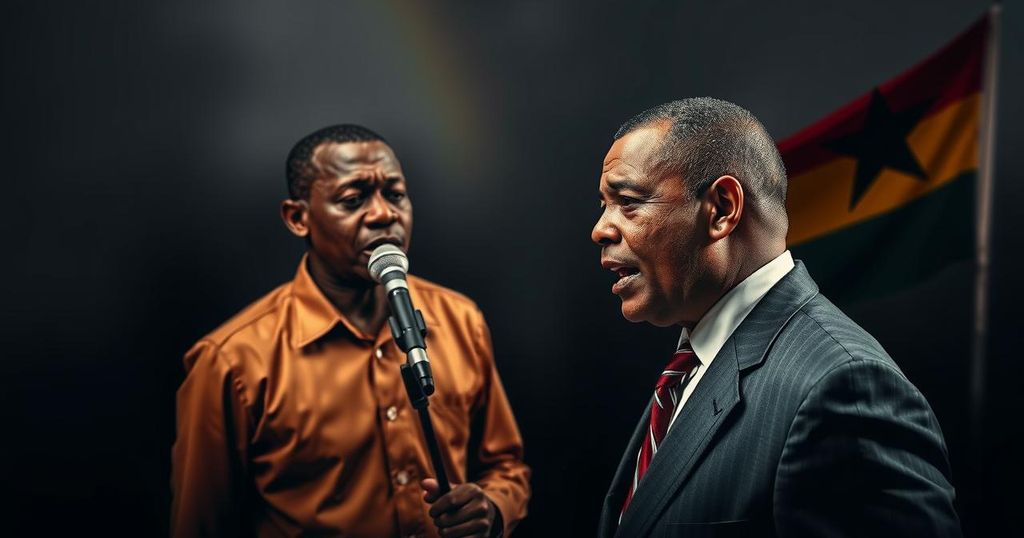Zimbabwe’s Alleged Interference in Regional Elections Sparks Controversy

Zimbabwe faces accusations of intervening in the electoral affairs of neighboring countries, particularly from opposition groups in Botswana, Namibia, and Mozambique. Allegations of Zanu-PF’s involvement include campaigning for Frelimo in Mozambique and the BDP in Botswana, raising concerns about regional sovereignty and electoral integrity. The Zimbabwean government has denied these claims, asserting it only supports democratically elected governments through legitimate channels. The situation underscores the complexity of political influences in Southern Africa.
Zimbabwe’s involvement in electoral affairs of its neighbors has sparked substantial controversy, particularly from opposition groups in Botswana, Namibia, and Mozambique. These groups assert that the Zimbabwe African National Union-Patriotic Front (Zanu-PF) is actively intervening in their electoral processes, thereby undermining the sovereignty of these nations. Zanu-PF, a prominent remaining liberation movement in Southern Africa, has taken steps to support both the Mozambique Liberation Front (Frelimo) and the Botswana Democratic Party (BDP). For instance, prior to Mozambique’s disputed elections on October 9, Zanu-PF dispatched campaign teams to bolster Frelimo, enabling the latter to conduct campaign events across Zimbabwe, aimed at capturing the diaspora vote. Moreover, Zimbabweans residing in Mozambique participated in elections through the diaspora voting framework, with some Zanu-PF members reportedly casting their votes in favor of Frelimo. In Botswana, Zanu-PF officials have been seen campaigning alongside President Mokgweetsi Masisi’s BDP in anticipation of the October 30 elections. Namibian opposition has expressed alarm at the alleged collusion involving a South African printing company linked to President Emmerson Mnangagwa, which has been contracted to produce ballot papers for the upcoming November 27 elections. In response to these allegations, Mr. Ian Khama, the former President of Botswana, has voiced concerns regarding Zimbabwe’s purported electoral interference, stating, “We just learnt that members of Zanu-PF voted in the just ended Mozambique general elections.” Job Sikhala, a leader of the opposition in Zimbabwe, emphasized the necessity for the Southern African Development Community (SADC) to intervene. He stated, “Zanu-PF’s push for regional recognition has reached desperate levels… That’s interference in the domestic affairs of a sovereign neighboring state.” In contrast, Nick Mangwana, the Zimbabwean Government Spokesman, refuted these claims, proposing that Zimbabwe collaborates exclusively with democratically elected governments in the region and engages only in SADC observer missions. He remarked, “It is preposterous to allege that Zimbabwe is the country that determines who governs every country in the region.” Tensions have previously arisen between Zimbabwe and Zambia, with accusations of interference following a SADC observer mission’s critique of the August 2023 elections in Zambia. This escalating diplomatic friction underscores Zimbabwe’s contentious regional role, particularly as it currently chairs SADC. As a chairing member, Zimbabwe’s overt involvement in neighboring elections could necessitate mediation in electoral disputes and foster scrutiny regarding its commitments to regional stability. The situation remains fluid as Mozambique’s opposition protests against election manipulation intensify and promises of support from Zimbabwe continue to fuel allegations of interference. President Mnangagwa’s premature congratulations to Frelimo for a victory further complicates the matter, raising questions about Zimbabwe’s role in the electoral integrity of its counterparts.
The political landscape in Southern Africa is intricately tied to historical movements for independence and liberation from colonial rule. Zanu-PF is one of the few remaining liberation parties still in power, and it positions itself as a bulwark against neo-colonial influences in the region. Over the years, it has cultivated relationships with ruling parties in neighboring countries, ostensibly to maintain a united front against perceived external threats. However, these relationships have come under scrutiny as opposition movements in countries like Botswana and Namibia allege that Zanu-PF’s involvement constitutes interference in their domestic politics, undermining their sovereignty and electoral processes. This controversy reflects broader concerns about regional stability and the boundaries of political influence among neighboring states, particularly within the context of the Southern African Development Community (SADC).
The allegations of Zimbabwe’s interference in the electoral processes of its neighbors evoke significant tensions within Southern Africa. As opposition parties in Botswana, Namibia, and Mozambique challenge the legitimacy of Zanu-PF’s actions, the situation highlights critical issues surrounding national sovereignty, regional governance, and the ethical implications of political alliances. With Zimbabwe currently holding the chairmanship of SADC, it is incumbent upon the organization to address these tensions and reinforce the principles of democratic autonomy and fair electoral practices within the region.
Original Source: www.theeastafrican.co.ke







